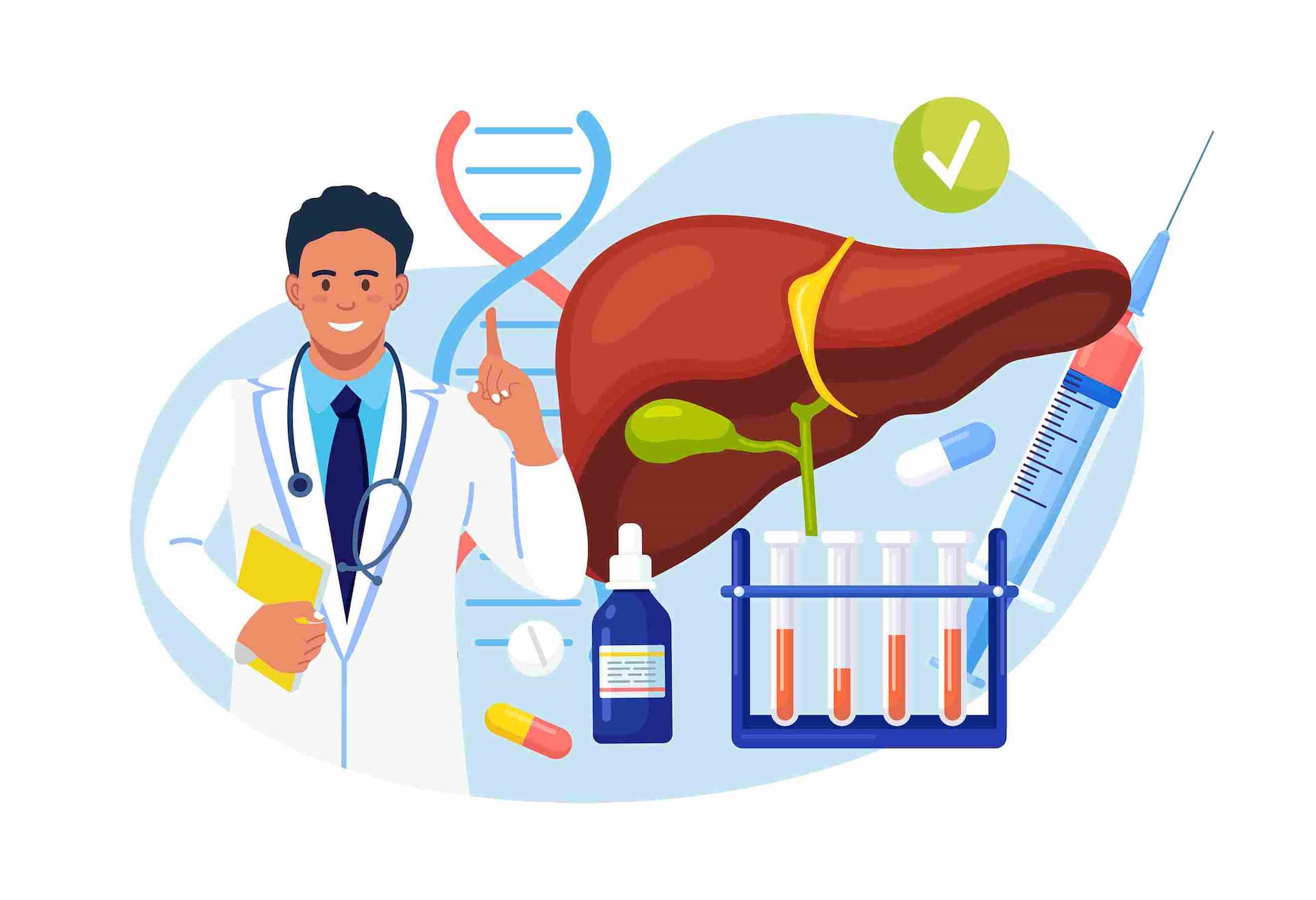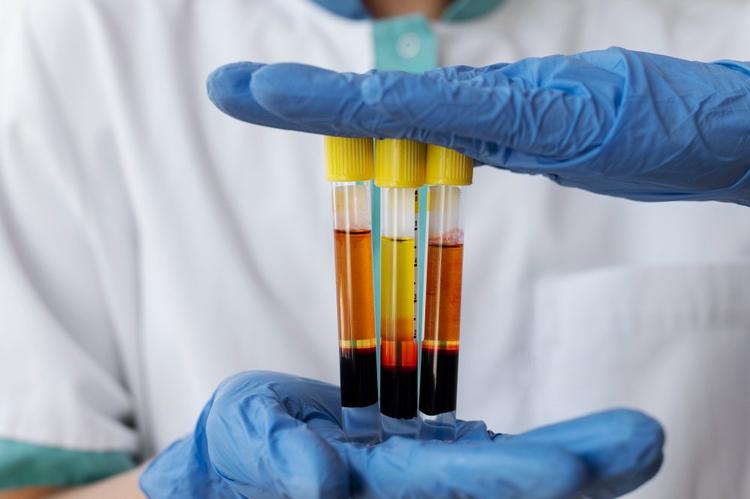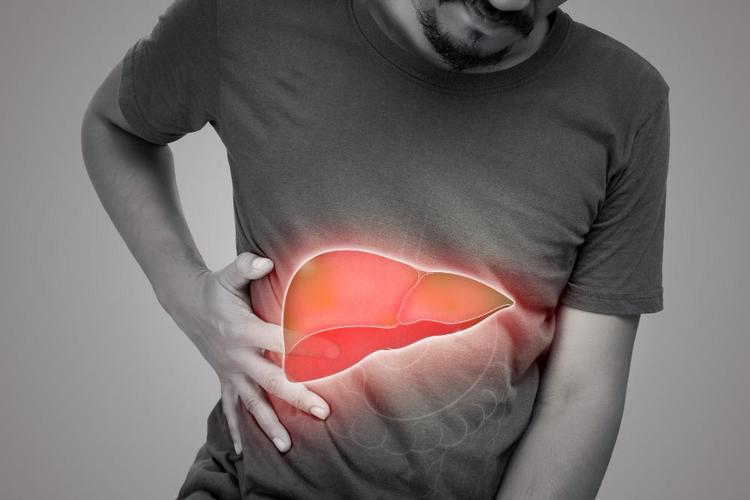Blood Tests For Liver Function: Know the Comprehensive List

Medically Reviewed By
Dr Divya Rohra
Written By Meenakshi
on Jul 24, 2023
Last Edit Made By Meenakshi
on Mar 18, 2024

Have you ever seen or played football? Of course, you have seen it. Your body also has a football-sized cone-shaped organ called the liver in the upper right of the abdomen. In the human body, it is the largest gland that performs several important functions ( more than 500 tasks ) in your body and is the only organ able to regenerate efficiently.
Liver function tests help to measure enzymes, proteins, and other substances made by the liver and check the overall health of the liver. These tests help to diagnose liver diseases.
Before we discuss what those important blood tests for the liver are, let's discuss the functions of the liver.
Functions of the liver:
The liver gland has more than 500 distinct roles in the body, including processing chemical levels in the blood and expelling a product called bile, which helps to carry away waste products from the lever. Blood leaves the stomach and intestine and passes through the liver. The liver processes the blood, creates nutrients, and eliminates drugs from easier use for the rest of the body.
Some more common & crucial functions your liver carries out include:
- Bile production: Helps carry away waste and break down fats, cholesterol, and vitamins in the small intestine during digestion.
- Absorbing and changing into bilirubin: When the hemoglobin breaks, it forms bilirubin, and when the iron is released from hemoglobin, the liver stores it to produce the next generation of blood cells.
- Supporting blood clots: Bile is essential for absorbing vitamin K ( creat coagulants that help the blood to clot) and forms in the liver.
- Metabolizing carbohydrate: The liver stores carbohydrates that can break down into glucose and be released into the blood to maintain glucose levels.
- Blood filtering: One of the functions of iver is to remove compounds from the body, including hormones, alcohol, drugs, and other harmful substance.
Not just this, the liver is also responsible for varied other purposes; therefore, taking care of it is critical. Another amazing thing about our liver that most people don't know is that it can regenerate after damage. Yes, it is that amazing, and we need to take care of it for healthy living.
So, what causes them illness? Let's find out:
Causes that cause liver diseases:
Conditions that can damage and affect your liver are called liver diseases. When healthy liver tissues replace with many scar tissues, the liver fails to perform properly, and if left unaddressed in time, it can lead to liver cancer and liver failure. Some causes of liver diseases include:
- Infection: Parasites and viruses can cause inflammation and can reduce liver function. This virus can spread through blood, contaminated food, water, and close contact with infected persons and cause liver damage. The most common liver infection hepatitis viruses are hepatitis A, hepatitis B, and hepatitis C.
- Abnormal immune system: When your immune system attacks certain parts of your body, it causes problems like primary biliary cholangitis, autoimmune hepatitis, and primary sclerosing cholangitis.
- Genetics: Liver damage or diseases can also be genetic. Some common genetic liver diseases are hemochromatosis, Wilson's disease, and alpha-1 antitrypsin deficiency.
The cause could be anything; addressing the problem in time is what matters. And for that, it is critical to identify the early signs related to it.
Symptoms of live diseases can vary but often includes abdomen and legs swelling, changes in the stool and urine color, and jaundice, and sometimes there are no symptoms.
Doctors often suggest a liver function test or a blood test for the liver to check if your liver is functioning properly. There is no one test for all, different tests are available for various health needs, and doctors suggest them depending on factors like health condition, symptoms, age, genetic history, etc.
What are liver function tests?
Liver function tests (LFT) are blood tests that indicate the state of a patient's liver. These tests include an albumin blood test, proteins test, alkaline phosphatase test, and others. Most diseases cause mild symptoms initially, but these should be at that time for better management.
Some other important blood tests for the liver are:
- Albumin, serum: Albumin blood test helps to measure the level of albumin in the body (high albumin could be a sign of dehydration, and low albumin levels could be a sign of liver/kidney disease or other medical conditions. This test checks how well your liver and kidneys are working and measures different proteins, enzymes, and other substances; if your liver is not making enough albumin, that can be a sign of liver damage.
- Proteins, serum: A protein serum test measures the total amount of protein ( albumin/globulin ) ratio and compares the amount of albumin to the amount of globulin in your blood. This test helps diagnose liver and kidney diseases or other nutritional problems. An abnormal A/G ratio can be a sign of a serious health problem.
- Alkaline phosphatase, serum: Alkaline phosphatase is an enzyme in many body parts. This test helps to measure the amount of ALP in blood and also helps to screen liver or bone diseases and other health conditions. The alkaline phosphatase test is a part of liver function tests that check how well your liver works.
- Bilirubin, Serum: During the breaking down of old red blood cells, your body makes a yellowish substance called bilirubin. It is found in bile (a fluid your liver makes to digest food). The bilirubin test checks your liver's health and diagnoses newborn jaundice.
- Prothrombin time: Prothrombin time test measures how quickly your blood forms a clot. Your body launches a step-by-step process to create clots to stop bleeding. If you're taking the blood thinner, your healthcare provider might suggest this test to monitor your prothrombin levels.
- Lactate Dehydrogenase Test LDH: Lactate Dehydrogenase (LDH) measures the level of LDH in your blood or sometimes in other body fluids. Damaged tissues release lactate dehydrogenase into the bloodstream or other body fluids. High LDH blood or fluid levels mean certain tissues have been damaged due to some disease or injury.
- Gamma-glutamyl transferase (GGT): GGT test measures GGT in the blood, an enzyme found throughout the body, mostly in the blood. GGT may leak into the bloodstream because of the damaged liver. A high level of GGT may be a sign of a damaged liver.
These are some common tests that help analyze liver health. Apart from these, many other tests are available that help to track liver health & diagnose liver diseases.
If you're looking for a blood test for the liver, Redcliffe Labs is your best choice. We provide 100% accuracy in the report and same-day report collection with a free home sample collection service. So, ensure your good health and wellness with Redcliffe Labs.


